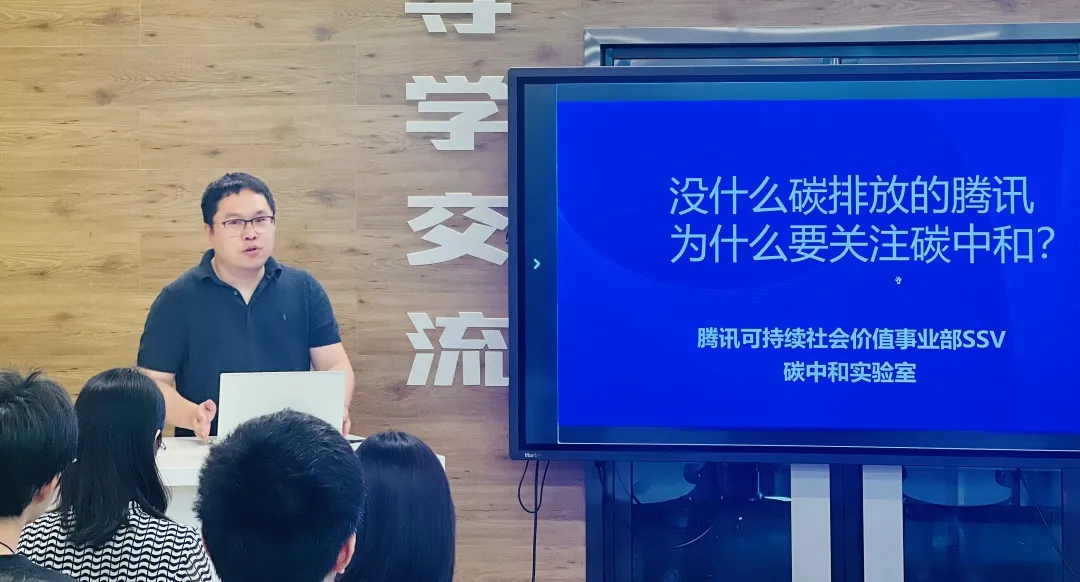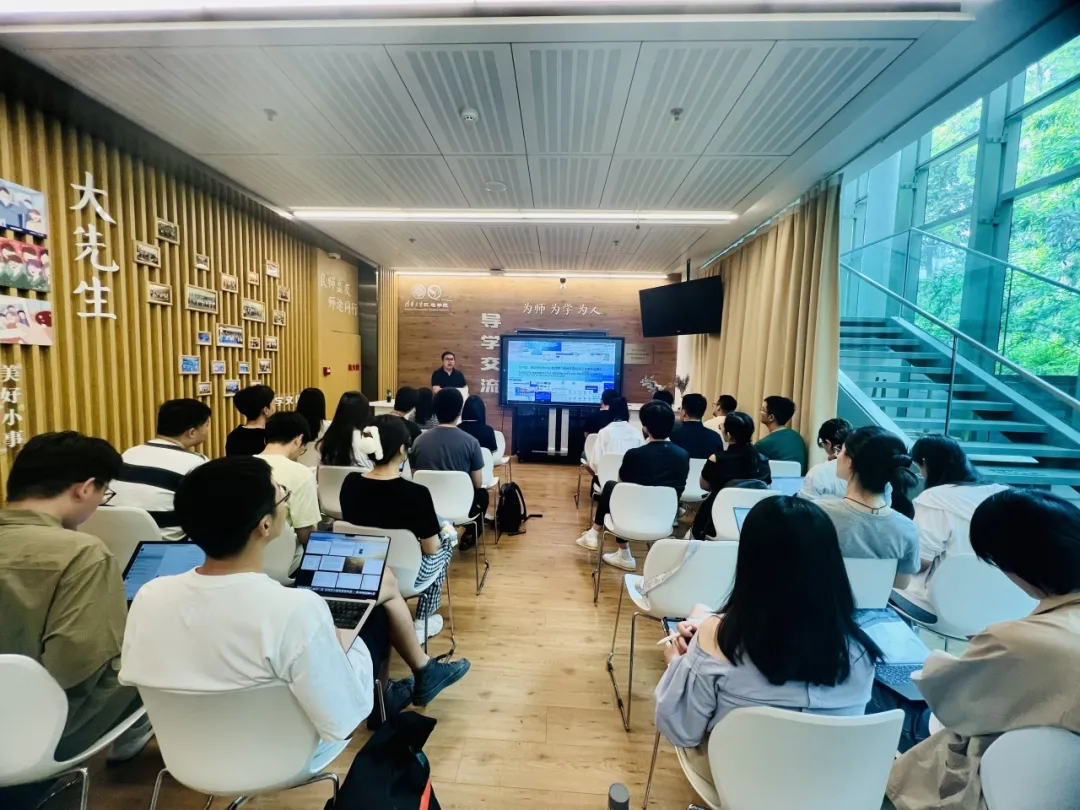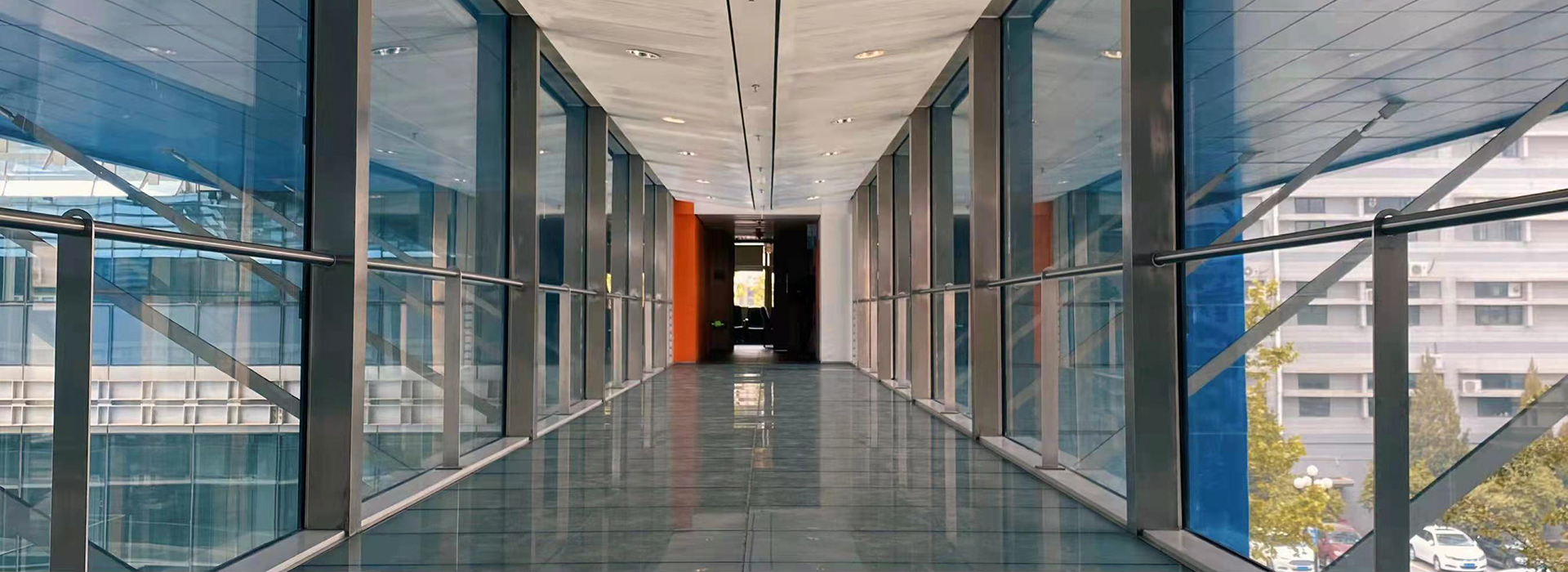On the morning of June 27th, the eighth seminar of the "AI for Eco-Environmental Management" Academic Week, part of the "Four Decades of Environmental Science: Shaping the Future Together" series of academic activities, took place in the Daoxue Space at the School of Environment (SOE), Tsinghua University. Xu Hao, Vice President of Sustainable Social Value (SSV) at Tencent, was invited to share insights on Tencent's strategies for achieving carbon neutrality through both internal emissions reduction and external empowerment. The event, chaired by Associate Researcher Wang Chunyan from the SOE's Division of Environmental Systems Analysis, attracted active participation from many faculty members and students from the School of Environment, the Institute for Carbon Neutrality, the Department of Hydraulic Engineering within the School of Civil Engineering, and the School of Public Policy& Management.

Seminar by Xu Hao
Xu Hao first introduced Tencent's status and strategies of carbon emissions. He highlighted that Tencent is actively advancing its carbon neutrality efforts through a series of measures, including utilizing renewable energy, enhancing the energy efficiency of data centers and office buildings, and building a low-carbon supply chain. Additionally, Xu Hao focused on Tencent's practices in supporting external carbon neutrality. First, Tencent is leveraging digital tools to support industries in their transition to low-carbon practices. This includes exploring flexible load management and demand-side response for data centers via virtual power plants, and using rendering technology to visualize the CO2 sequestration process, aiding in site selection and monitoring. Second, Tencent promotes low-carbon behavior among its large user base through projects such as "Low-Carbon Planet" and "Carbon Island", encouraging users to adopt low-carbon lifestyles. Third, Tencent drives the development and application of low-carbon technologies through its CarbonX initiative, which includes CarbonX Lab, CarbonX Accelerator, and CarbonX Infrastructure. These projects target research institutions, enterprises, and government bodies. Tencent is further exploring innovative technologies, such as converting steel mill waste into bricks, processing CO2 into aviation and marine fuels through electrochemical reactions, and using bacteria to transform CO2 into clothing and food. These efforts aim to support the incubation and commercialization of global low-carbon technologies within China's emission reduction scenarios.
As an environmental science graduate, Xu Hao also shared his experiences and reflections on career prospects in the environmental field and personal career development. At the end of the event, a lively discussion was held among the participants.

The attendees
The School of Environment's "AI for Ecology and Environment" Academic Week Seminar will continue to invite environmental experts and scholars from research institutions and industry enterprises both at home and broad, to engage in high-quality academic discussions.





